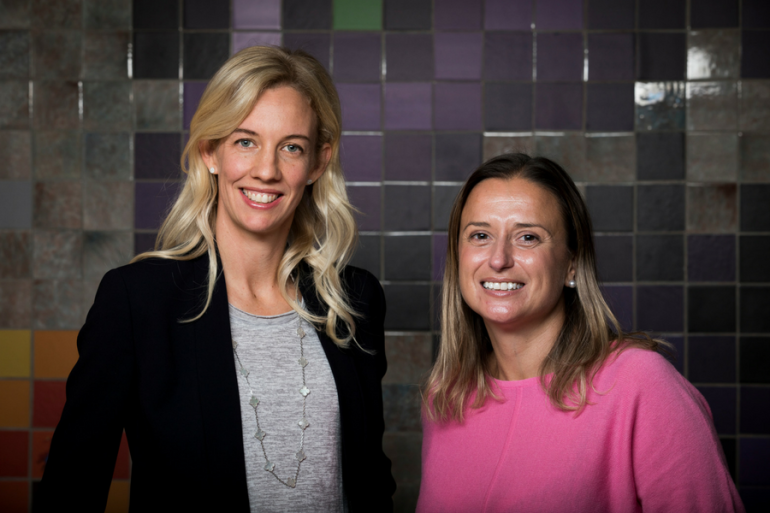What do fast Australian high-growth ventures Airwallex, Brighte, Canva, and Mr Yum have in common?
They all have female founders. Three have female CEOs.
But, when looking at the latest recruitment for the latest Upside Founder Program, a specialised program to help startup founders unlock peak performance, just two out of 70 applicants are female founders.
Past graduates from Upside include founders from Agriwebb, Baraja, Go1 and HarrisonAI. It’s unique in the market for bringing the science of performance to founders and their startups – and features a host of global expert mentors.
Despite focusing on the relatively small market of high-growth startups looking to rapidly scale their businesses, the program has always been oversubscribed with registrations from both male and female founders.
So far, only 3% of the applications for the 2022 program have come from female founders.
Fortunately we still have time to address the imbalance.
Why are so few female founders putting themselves forward?
It may be that female founders, more than most, are just exhausted and are simply desperate to fall over the line into Christmas and New Year and, hopefully, recover in time for a bumper 2022. It may be that the unfair share of domestic and/or parenting responsibilities mean that women don’t have the ability to commit time for their own learning and development.
And yet, we know how essential it is for founders to have peer support, mentorship and perspectives from outside their team and immediate stakeholder group in order to maximise their own potential and the potential of their business.
We also know that female founders are still underrepresented in Australia. Estimates from various sources, including the latest Startup Muster and Crunchbase data, put the proportion somewhere between 20 and 30%.
When it comes to funding, the statistics are even less balanced. When we analysed investment in startups with one or more female founders earlier this year, we found that only 12.8% of funding went to these startups in the 2021 financial year. That did increase from 8.2% in 2020, but still represents a major gender gap in terms of venture capital support.
With multiple reports indicating that female-founded startups deliver better returns on investment, there is a clear and irrational imbalance that needs to be addressed.
The gender gap also goes all the way to the board level for Australian startups. Only 39% of startup boards have any female representation, according to a 2019 Startup Board Report produced by KPMG High Growth Ventures and Think & Grow. One in four board members suggest the issue is lack of referral of female candidates.
Is it because women don’t want to be seen to be self-promotional?
A 2019 study by academics from Harvard Business School and Wharton School of Business found that men have a far higher view of their performance than women.
When asked to self-evaluate performance on a test, despite both genders performing equally, men publicly rated themselves an average of 61 out of 100 while women only rated themselves a 46 out of 100. Their conclusion was that men engage in substantially more self-promotion than women.
Perhaps this reluctance to self-promote is affecting the applications for the 2022 Upside Founder Program. In past years, we have asked venture capital firms to directly nominate founders to join the program, while this year we focused on broader marketing.
While the application numbers have remained steady, the proportion of female founders has dropped significantly. The difference between being put forward by an investor rather than having to self-nominate may account for some of this fall.
Or is it because women leaders don’t prioritise themselves?
One of the core foundations of the Upside Founder Program is its focus on founder health and wellbeing and the link to sustained high-performance. Underpinned by solid high-perfomance science and KPMG High Growth Ventures Founder research which shows that a founder’s personal performance is critical for the success of their startup – the program’s first step is to help the founder themselves.
It does this by offering guidance to optimise the physical, mental and emotional self through emotional intelligence training, focus techniques, enhancing physical health, energy management and resilience training, analysing motivations, and developing personal and professional relationships.
Of all the founders I work with, I’ve seen women in particular, struggle to put themselves first.
Many female leaders I’ve spoken to talk of how they feel they have to work twice as hard as their male counterparts. It can be highly challenging for women to make time for themselves and to prioritise their own self-development. But this needs to change.
What can be done?
We don’t have the answers – it’s a complicated problem, and not one that can be solved overnight. However, we cannot just accept the gender gap, more needs to be done to support and develop female startup leaders, and we believe that Upside, with its unique “founder first” focus has an important role to play.
So we are asking anyone who reads this to share with a female founder who is leading a late stage Seed, Series A or Series B stage startup, and ask them to consider applying for the Upside Founder Program.
We’re also going to extend the application deadline to Friday, December 10.
If you’re a female founder who wants to know why the Upside Founder Program could be a game-changer for you, don’t hesitate to reach out directly to the KPMG High Growth Ventures team.
Founders can apply for Upside here.
- Amanda Price is Partner in Charge – Ventures at KPMG Australia.




















Trending
Daily startup news and insights, delivered to your inbox.